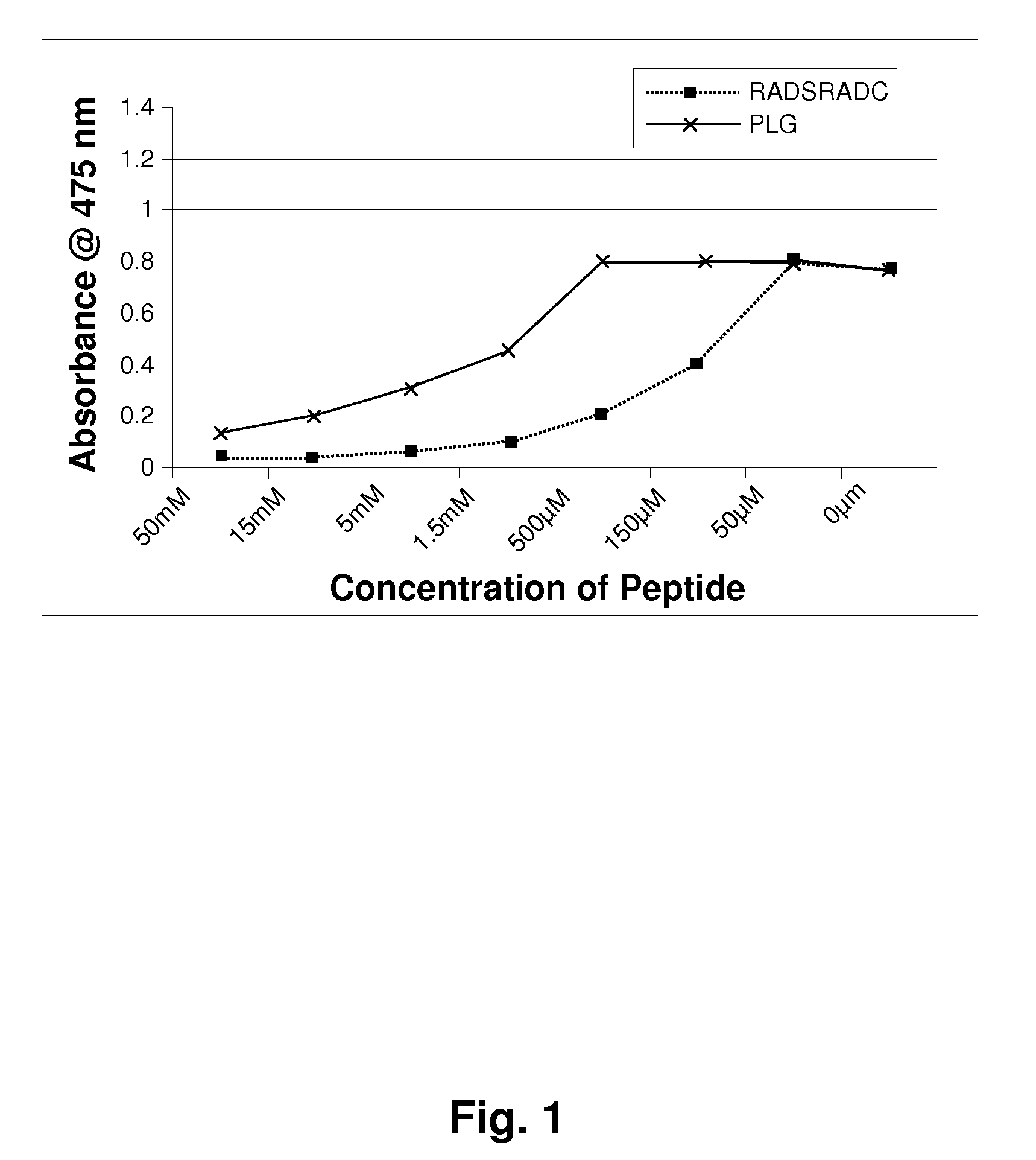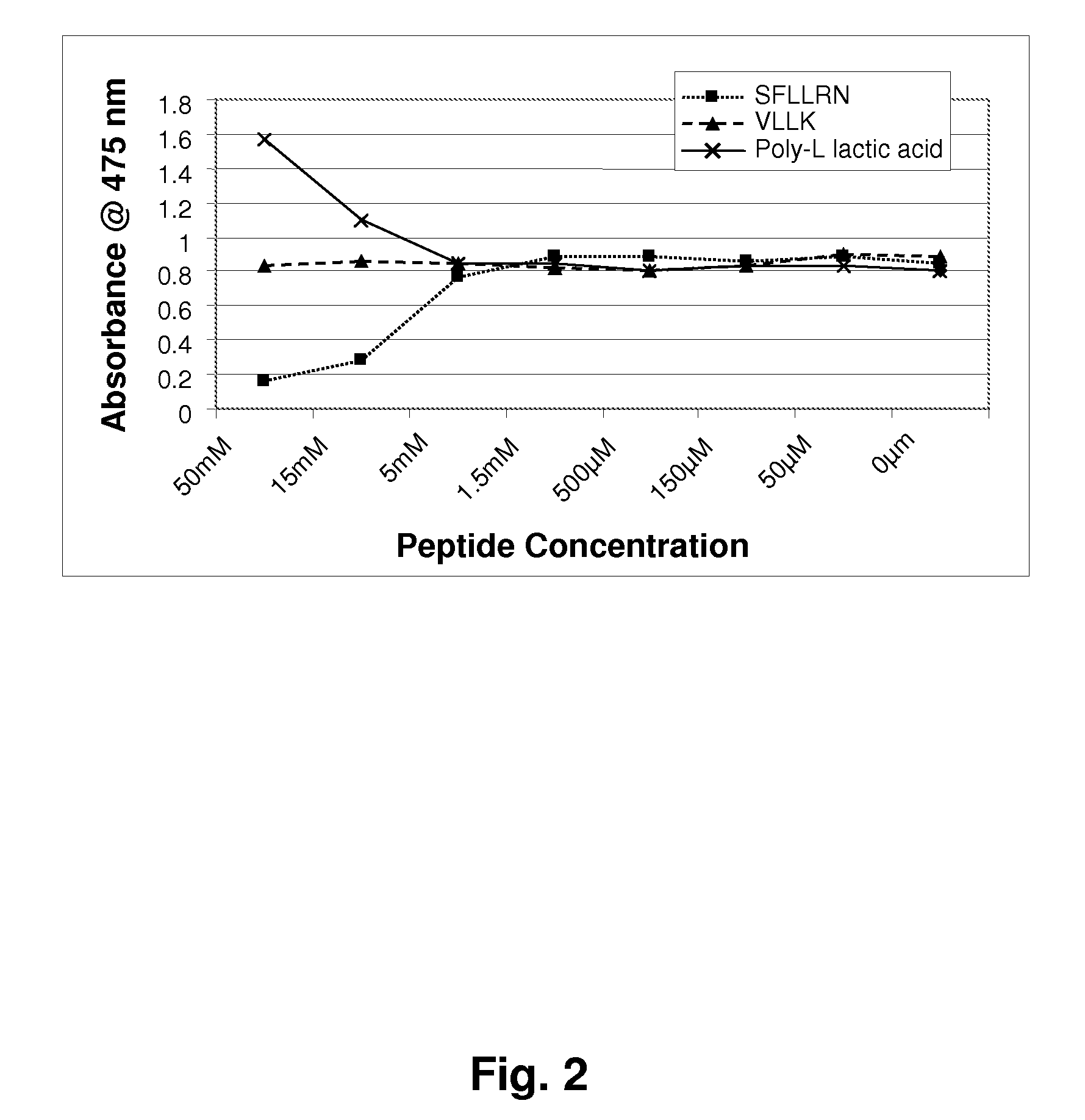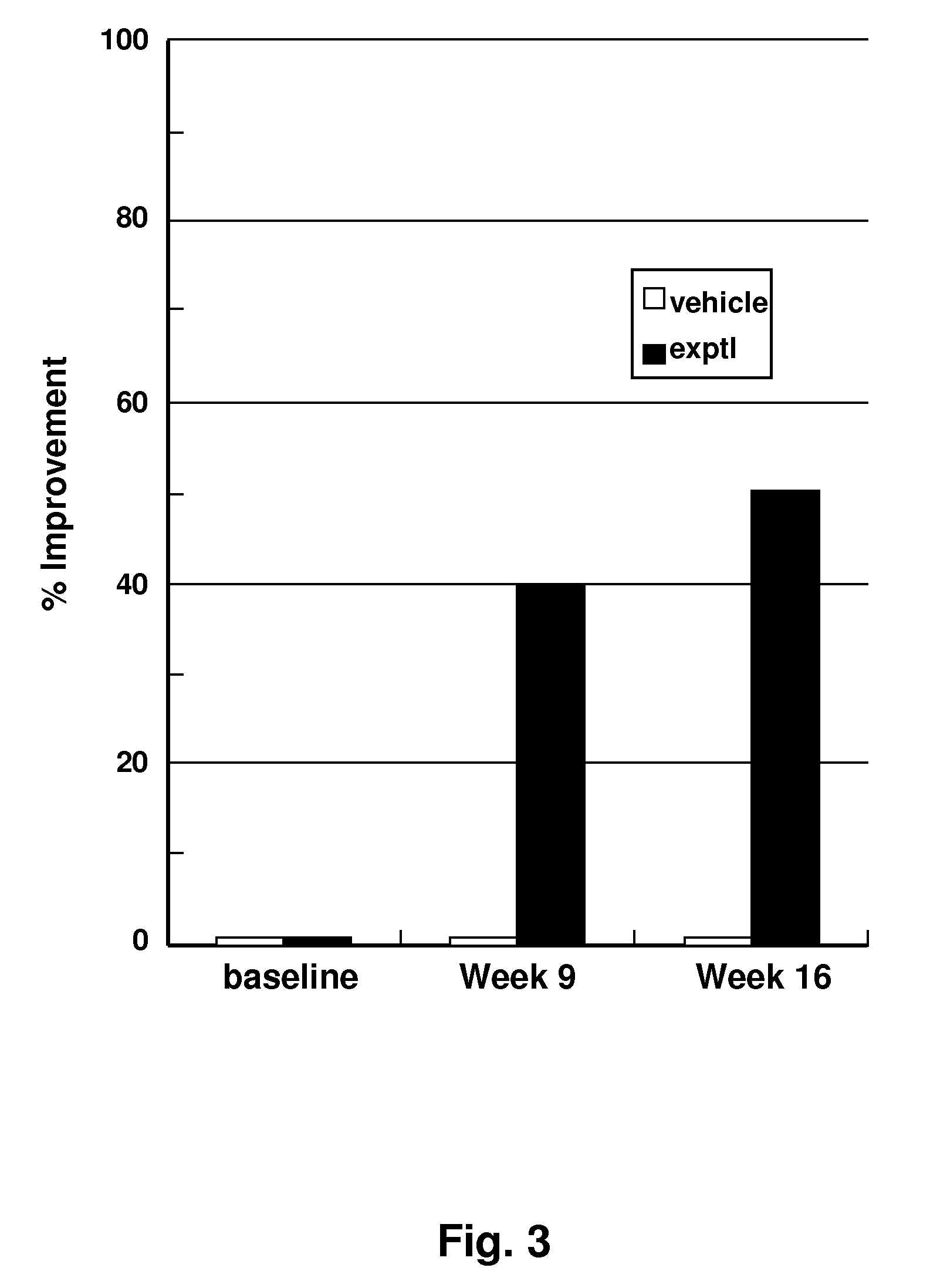Peptide Tyrosinase Inhibitors and Uses Thereof
- Summary
- Abstract
- Description
- Claims
- Application Information
AI Technical Summary
Benefits of technology
Problems solved by technology
Method used
Image
Examples
examples
Design and In Vitro Testing
[0123]Mushroom tyrosinase, L-tyrosine and other chemicals for the enzymatic reaction were obtained from Sigma-Aldrich. Short sequence peptides 1-7 were designed based on potential homology with known tyrosinase substrates. All synthetic peptides were between 3 and 10 amino acids in length and were synthesized using tBoc and / or Fmoc solid phase chemistry. Peptides were confirmed to be of research grade (>80% purity) in all cases. It is understood that research grade reagents were used for convenience, and it is preferred that the peptides be prepared to pharmaceutical grade purity, greater than 90%, preferably greater than 99% pure.
[0124]Inhibition of tyrosinase by experimental peptides was determined by calorimetric detection of dopachrome, the reaction product of the substrate L-tyrosine. Mushroom tyrosinase, L-tyrosine, and a potassium phosphate buffer (pH 6.8) were added to 96-well plates containing short sequence peptides dissolved in 5% DMSO and incub...
PUM
| Property | Measurement | Unit |
|---|---|---|
| Molar density | aaaaa | aaaaa |
| Molar density | aaaaa | aaaaa |
| Concentration | aaaaa | aaaaa |
Abstract
Description
Claims
Application Information
 Login to View More
Login to View More - R&D
- Intellectual Property
- Life Sciences
- Materials
- Tech Scout
- Unparalleled Data Quality
- Higher Quality Content
- 60% Fewer Hallucinations
Browse by: Latest US Patents, China's latest patents, Technical Efficacy Thesaurus, Application Domain, Technology Topic, Popular Technical Reports.
© 2025 PatSnap. All rights reserved.Legal|Privacy policy|Modern Slavery Act Transparency Statement|Sitemap|About US| Contact US: help@patsnap.com



